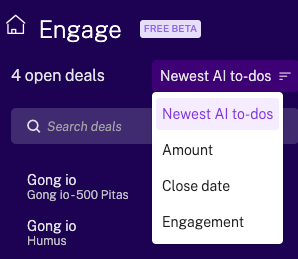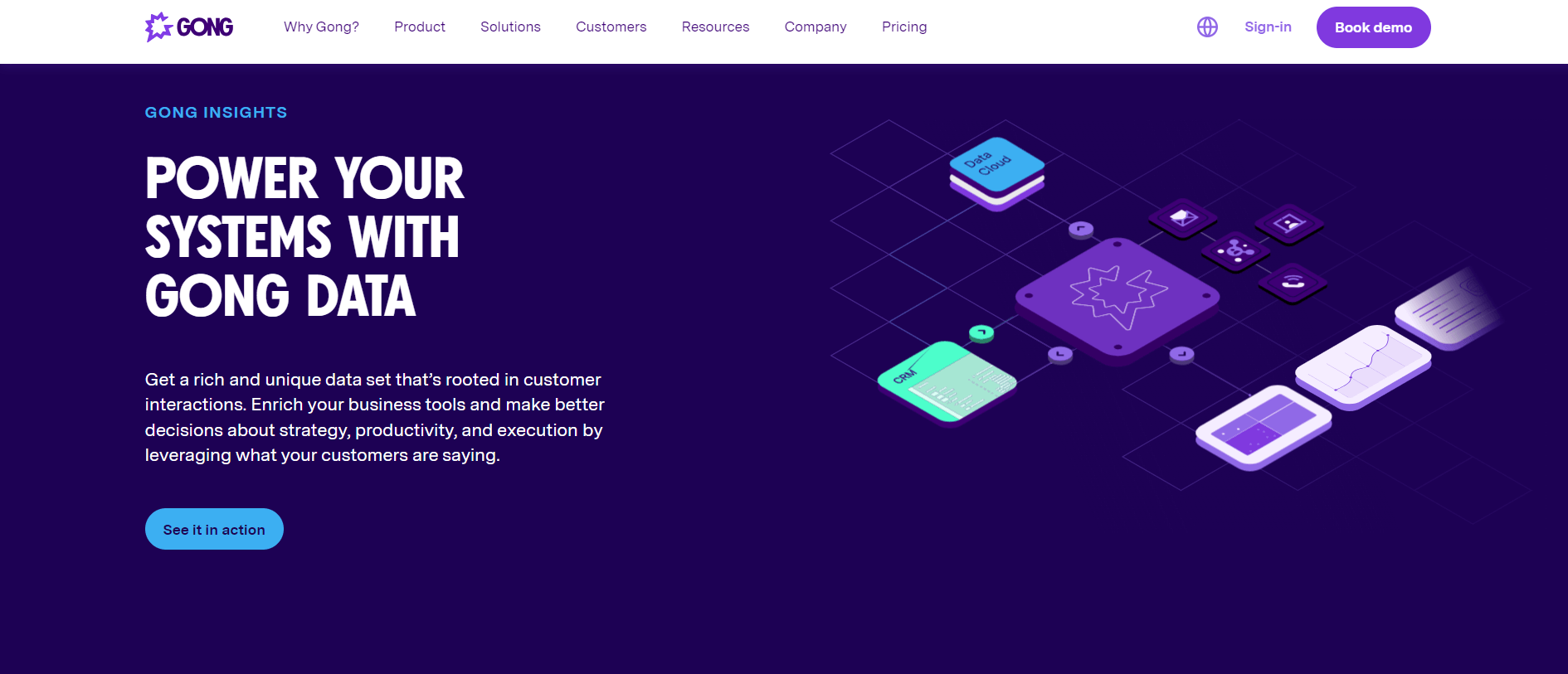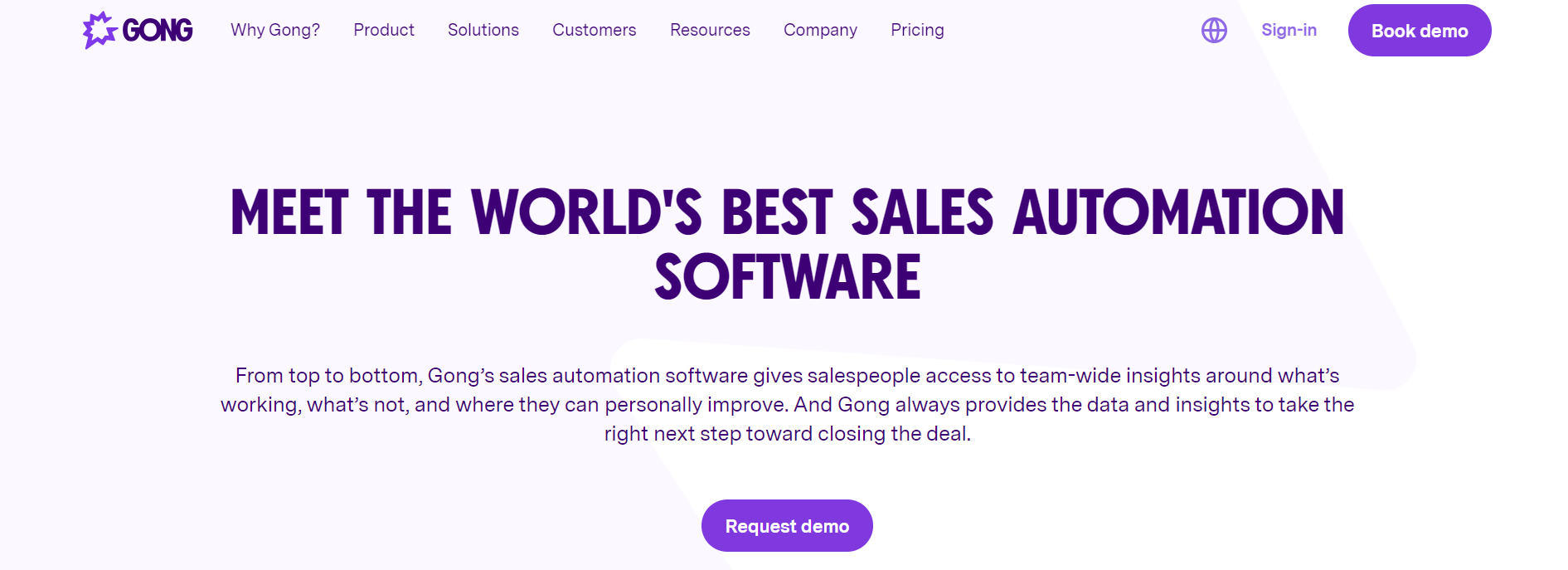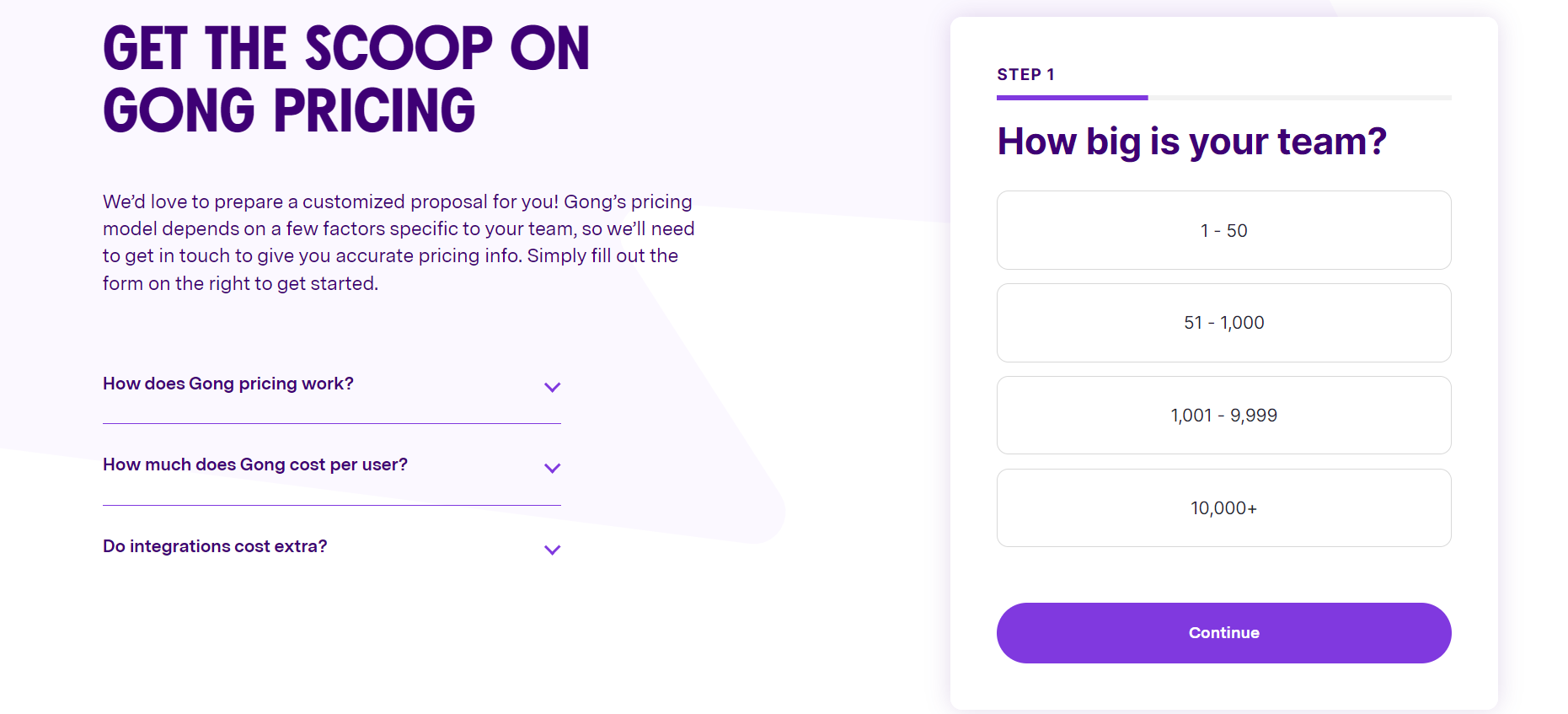Deal management software: How to pick the right one for your business

You know the art and science of closing deals — but are you closing as many of them as possible?
Or are vital details slipping through the cracks, like they do for 86 percent of sellers who participated in LinkedIn’s State of Sales survey? This large swath of respondents experienced the same pain point: They lost deals because a critical client or stakeholder simply walked away.
Of course, no sales professional has full control over losing stakeholders. But your team should have enough visibility into their deals to predict this kind of outcome in most cases.
The good news is that your chosen deal management software can support you in key ways:
- Recognizing deal flow patterns
- Uncovering insights into deal risks
- Providing AI-powered automation that boosts productivity and accuracy
If your team lacks predictability and needs more clarity, visibility, and certainty around deal outcomes, it’s time for new deal management software.
Below, we explore key aspects of the software selection process.
Understanding deal management platforms and their capacity
Deal management software streamlines and automates sales processes to improve their efficiency and outcomes. It often features a centralized dashboard where sales professionals, marketing teams, and other key players involved in closing and securing deals can get at-a-glance information about a deal’s progress. With the right information, you can also analyze data about each deal, harness specific features that ensure the progress of forecasted deals, or raise flags around stalled deals to change their outcome.
Make sure your team has access to these basic features of reliable deal management software:
- Sales tracking: Track and manage potential customers, from initial contact to conversion. This feature also helps filter the most qualified prospects and surface critical account, deal, and contact details in seconds.
- Sales forecasting: This will help you create more accurate revenue forecasts by analyzing historical data, trends, and patterns, alongside current deal data.
- Pipeline management: You’ll have a single source of truth, so you can easily manage deals and track the health of your entire pipeline.
- Communication and collaboration tools: Share feedback and suggestions more efficiently, enable collaboration that closes deals, and make sure everyone involved is on the same page.
- Sales analytics and reporting: Analyze deal progress and generate reports on trends, sales performance, and pipeline quality.
- Integrations: Sync easily with your CRM, communication tools, and other productivity software, creating a streamlined ecosystem for ultimate operational efficiency.
Deal management software offers visualizations of your entire deal lifecycle and gives you more control over its progress.
7 benefits of using deal management software
Time saved on one deal means more time spent closing other deals. That’s one of the main benefits of using deal management software.
But today’s sales professionals need more than efficiency alone. They need deal management software that also offers predictability, AI-powered decision-making, and accurate, unbiased data — to name a few.
Before you choose a platform for your team, make sure it provides these seven benefits:
1. Predict sales accurately
Don’t leave your sales to chance. Doing so is the quickest way to miss opportunities and fail to meet your sales goals.
Instead, you need an AI-powered deal management platform to accurately predict sales cycles and revenue. These platforms create forecasts using customer data, sales trends, and industry insights.
You can use accurate forecasting to:
- Anticipate market shifts and adjust to demand
- Set realistic sales targets and business goals
- Plan your budget and maintain cash flow
- Optimize inventory and supply chains, reducing delays
- Strengthen sales strategies with data-driven decisions
A platform like Gong Forecast, for example, uses 300+ unique signals to predict deal outcomes, delivering 20 percent more precise forecasts than CRM data alone. With Gong Forecast, you can confidently predict future revenue outcomes by analyzing in-quarter sales trends, historical performance, and detailed deal insights.
2. Maintain and manage your sales funnels
Deal management software offers complete sales funnel visualization by integrating all your sales channels — emails, social media, downloads, etc. — to capture leads automatically. Once the lead is captured, the system offers a real-time view of its progress, allowing you to quickly identify and eliminate bottlenecks.
Plus, the platform’s detailed customer data allows you to personalize engagement at each funnel stage, so you can identify at-risk deals and measure the health of your pipeline.
This lets you quickly address prospect concerns, keep buyers moving down the funnel, and, as a result, close more deals.
3. Prioritize your most crucial deals
Manual pipeline management can be chaotic, often leading to crucial deals slipping through the cracks. Deal management software prevents this by prioritizing high-value deals on your dashboard.
The platform sorts deals into categories like:
- Newest AI to-dos
- The highest value
- The closest close date
- The highest engagement
With real-time updates on each deal’s progress, you can take action quickly to address concerns and keep deals moving through the funnel.
These platforms also generate valuable customer insights, capturing interactions with high-value clients that help you identify gaps and remove roadblocks. This ensures a smooth sales journey — increasing your chances of closing the deal.
For example, Gong prioritizes deals based on urgency and importance, allowing you to focus your efforts where they matter most.
4. Gain an understanding of customer needs
As customer needs evolve, so should your sales strategies. But how do you stay on top of current customer needs?
It’s easy — leverage deal management software.
The right sales solution will collect leads from multiple channels and store information in a single place. With a unified platform that automatically captures previous interactions and common concerns, your teams will have a clearer picture of every potential buyer.
In addition to organizing customer data, a platform with AI capabilities will gather actionable insights into key criteria:
- Buyer personas
- Demographics
- Preferences
- Pain points
This saves research time and increases productivity since your sales reps can easily find the information they need to adjust their strategies to effectively nurture leads and close deals.
For example, Gong syncs with customer relationship management tools and stores critical data from your customer interactions. That’s how Gong Insights offer an unprecedented view into current customer needs, allowing you to easily adjust your strategies for better conversion and retention.
5. Create brand value
Relying on manual sales processes creates disconnects between marketing and sales teams — which can lead to mixed messages for customers. This misalignment damages your brand and can stifle long-term growth.
Deal management software solves this issue by centralizing leads, client information, sales records, and interactions. Its automated updates mean your team can access the most current insights into your deal pipeline in just a few clicks.
This seamless access ensures that all team members are on the same page, fostering collaborative and data-driven planning for campaigns and sales outreach.
The result is a unified approach that creates a consistent brand image across all touchpoints, including marketing and sales. This consistency wins trust and strengthens bonds with buyers. When prospects see you as a reliable problem-solver, it boosts your credibility and brand value.
6. Identify which leads are more likely to convert
Sales teams often waste time chasing unqualified leads. This distracts them from pursuing quality leads that are more likely to convert.
To fix this, seamless sales qualification is essential — which is where deal management software comes in.
The best platforms use predefined criteria to rank prospects and prioritize leads, shining the spotlight on those who are more likely to convert. After pinpointing qualified leads, you can double down your efforts to nurture them with personalized communication.
Meanwhile, your marketing team can create campaigns that meet the commonly held needs and challenges of your top leads. Targeting the right people will generate more qualified leads and reduce your marketing spend.
7. Create and improve automation processes
When employees spend most of their workday on repetitive tasks, it frustrates them and reduces their efficiency. Plus, manual processes increase the risks to your business as it grows by increasing the chance of errors and inaccurate insights.
Deal management software solves these challenges by automating repetitive administrative tasks, such as:
- Tracking sales activities
- Logging performance data
- Generating actionable reports
This frees up your reps to focus on high-priority deals. Sales managers can also gain clarity into the entire pipeline and team progress without spending hours on manual work.
Beyond administrative tasks, sales intelligence software anticipates trends, identifies evolving customer challenges, and improves your marketing campaigns by automating:
- Email follow-up reminders
- B2B prospect identification
- Engagement recommendations
For example, Gong’s sales automation software automatically records client interactions, tracking key deal details like deliverables and estimates, so you can maintain strong client relationships.
7 criteria to look for in deal management software
Every deal follows multiple stages, from lead generation to negotiation and closing. It’s a given that your deal management software needs to provide functions that can accommodate every stage of your sales.
You should also consider the rapid rise of AI, which is fundamentally changing how deals are initiated, developed, and closed.
In 2023, Ansarada found that external factors such as political volatility, cybersecurity concerns, and regulatory changes significantly extended deal timelines. The median time to close a deal then was 244 days — more than eight months.
This highlights the need for quality deal management software that can track deal stages and capture crucial data so sales teams know what to do next and which deals are at risk.
Let’s look at seven essential features of deal management software.
1. Automation capabilities
One of the main reasons you invest in deal management software is to automate processes and save time.
Look for a tool with advanced automation capabilities, including sales tracking, data entry, and AI-powered intelligence that automatically identifies gaps and provides solutions.
…probably the most exciting thing for me about what we’ve done with forecasting at LiveRamp is that we’ve really embedded it into our customer life cycle, into our sales cycle, and into our journey.
Diego Panama, Former Chief Commercial Officer, LiveRamp
Reality-based forecasting with Diego Panama, COO, LiveRamp
An excellent way to see a solution’s automation capabilities is to sign up for free trials. When you do so, you should be able to answer these key questions:
- Does the software automate client data collection from different channels, such as forms, social media, and inbound and outbound sales calls?
- Does it have an automated lead-scoring framework?
- Is the automated sales pipeline and performance tracking done in real time?
- Does it automate repetitive tasks like data entry, follow-up reminders, and lead assignments?
- Are the customizable report metrics able to accommodate your unique KPIs?
2. Contact management and communication capabilities
Look for a solution with contact management and communication recording features. It should centralize and segment all your contacts, enabling your team to access and organize them easily through advanced filters.
Also, ensure the selected management software can record and analyze client interactions that allow you to:
- Identify bottlenecks in the sales process
- Track common concerns or issues
- Benchmark sales performance against goals
- Eliminate roadblocks that slow down progress
- Boost operational efficiency
3. Integration with CRM and third-party apps
Switching between multiple tools can cost you precious time.
Finding a sales tool that syncs with your CRM and other communication and productivity platforms is key.
Extensive integrations create an ecosystem, keeping all your valuable sales data, client interactions, and insights organized in one place. They also improve collaboration between your sales and marketing departments.
Worried about integrations? Look no further than Gong, which integrates with platforms like these, and many more (full list here):
- CRM tools (HubSpot, Salesforce)
- Emails and calendars (Google Workspace, Office 365, Calendly)
4. Pricing
Review deal management software features against their price to ensure you get the best long-term ROI.
Remember the adage that “cheap is expensive.”
If you’re solely focused on finding the cheapest tool on the market, you’ll need to compromise on valuable features and may even have to invest in additional tools in the future — which will cost you more.
A better approach is to consider your budget and the features you need most versus those you can go without.
List and compare the features and pricing of the tools you’re considering. You can also use a site like G2 to see features, read reviews, and more.
From there, choose software that offers the most functionalities for your budget.
When you compare pricing, consider potential future add-ons and their costs. It’s best if the vendor offers customizable subscriptions based on your team’s size so you can easily adjust your licensing plan as your company grows.
For example, Gong customizes its subscription pricing. Select your team’s size and the features you need, and you’ll get a plan that’s tailored to you.
5. Customer support
Implementing a new solution often involves technical hiccups. To ensure that they’re resolved quickly, choose a platform that offers reliable customer support.
Your chosen vendor should offer chatbots and a 24/7 customer assistance team.
Plus, it’s even better if the software comes with step-by-step guides and user modules to help your team learn the software quickly and reap its full benefits.
6. Ability to manage and track
Your chosen software solution should have task management and tracking capabilities. It should also automatically assign deals to the right sales reps, streamlining workflows and minimizing oversight.
Features to look for include:
- Task monitoring: Does the software monitor task completion across deal phases and generate performance metrics?
- Accountability tracking: Does it analyze individual sales efforts to ensure that team members are held accountable?
- Funnel visibility: Does it track the movement of your B2B prospects through the sales funnel and identify inefficiencies so you can make ongoing improvements?
7. Customization options
Since every business has unique needs, choosing software with extensive customization capabilities is vital. Look for software that allows you to:
- Customize lead scoring criteria
- Forecast timelines
- Personalize segmentation and outreach templates
- Track your unique sales metrics and common KPIs
A flexible tool lets you stay aligned with your business objectives and adjust based on changing client demands.
Deal management how-tos and best practices
We’ve discussed why you need deal management software and how to choose the right platform for your company. But what happens after that? Here are some best practices to get the most out of your selected software.
Have a clear and concise process
Define your sales process step by step. To do this, you must first figure out your business goals and set realistic sales targets.
Once you have your targets in place, you can create a strategic sales plan:
- Outline your ideal buyer
- Choose a sales method
- Define your sales process
- Provide your team with the necessary sales collateral
To take it a step further, consider the most probable challenges they’ll face and create solutions so your team can quickly tackle them without disrupting the sales flow.
With a clear sales process, your team will know precisely how to proceed with each deal, thereby minimizing confusion and ensuring a smooth client experience.
Ensure communication among team members
Deal management is a team effort.
Each team member is vital in moving the client onward through the sales journey, using effective communication and collaboration.
Luckily, it’s easy to sync Gong’s deal management software with internal communication systems so everyone is aligned and up to date.
The platform’s real-time data and customer insights allow teams to make informed and collaborative decisions and boost conversions.
Identify struggles
Assess performance metrics and customer interactions to identify potential areas of improvement.
Use journey and empathy mapping to pinpoint common areas of friction or heat mapping to detect frequent drop-off points.
Once you understand why clients aren’t converting (or are taking too long to convert), develop relevant strategies to overcome this issue.
For example, customers who drop off before signing up may be balking at extensive form fields. To solve this problem, try shortening the form or switching to one-tap sign ups.
Collaborate easily on deal-winning strategies with Gong
Sales is both an art and a science. You need skilled sales reps for the art of selling and powerful deal management software for the data and insights they’ll need to succeed.
If you’re ready for more accurate sales forecasting, streamlined sales processes, and transparency across the sales funnel, consider Gong’s Revenue AI platform.
With robust features designed to elevate every aspect of deal management, Gong’s AI-backed insights can give your team a competitive edge and increase your bottom line. To see Gong in action, book a demo today.
Related links:








